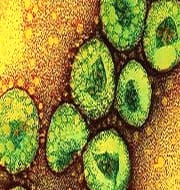Juvenile Camel’s key source of MERS: Study
As per recently published study, camels aged less than four years might be a major source of Middle East Respiratory Syndrome (MERS). The study was published in the journal Emerging Infectious Diseases
The research study was undertaken by international team who had looked for evidence of current or past infection in more than 800 dromedary camels (also called Arabian camels).
In this study researchers have found out that
- More than 90 per cent of camels were infected by MERS virus the age of two and virus shedding was more common in calves than in adults.
- Changes in animal husbandry may reduce the occurrence of human MERs infections.
- Dromedary camels that are living in the Middle East have antibodies that recognised MERS virus protein which is a strong sign of past infection.
- However the spread of MERS virus in humans is still unknown but it might spread due direct contact with body fluids from infected camels.
- Alternatively, it might have spread by drinking unpasteurised camel milk and possibly by transfer through the contaminated virus present in the saliva of an infected calf to their mothers.
Facts about Middle East Respiratory Syndrome (MERS)
- MERS belongs to the family of coronaviruses which includes large family of viruses such as common cold and Severe acute respiratory syndrome (SARS).
- It was discovered in 2012 and was mostly centred in Saudi Arabia. But cases might have occurred before.
- Source: MERS is a betacoronavirus derived from bats. Camels have shown to have antibodies to MERS, but the exact source of infection in camels has not been identified.
- Transmission: It can be transmitted from infected person to others after close contact via a respiratory route. It spread’s in droplets when an infected person coughs or sneezes.
- Symptoms: fever, breathing problems, pneumonia and kidney failure.
- Treatment: Till date there is no vaccine available to prevent it. However intensive medical care can help patient to breath.
Month: Current Affairs - June, 2015


